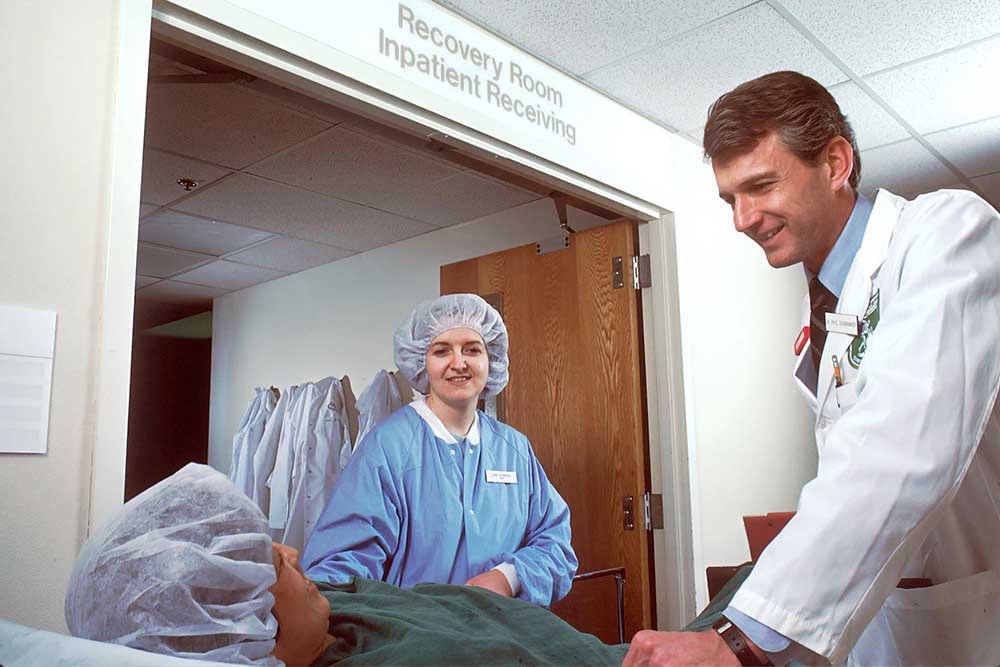Picture this, you are a highly qualified nurse professional and have ample knowledge in the field, but due to regulations you are only able to pass along small portions of that knowledge. It seems perfectly reasonable that you should be able to pass that information on to the next generation of nurses. Below, we will look further at the pros and cons of taking on an education role in the healthcare industry and just what this entails.
What Is Required?
The healthcare system works due to highly trained, organized, and professional staffing. When it comes to training or upskilling the next generation of nursing staff, further education is always required. Undertaking clinical nurse educator training would allow you to pursue this avenue. A clinical nurse educator instructs nurses and nursing students, preparing them to provide quality care to patients nationwide. As a clinical nurse educator, you would be classified as an advanced nursing professional and would be qualified to prepare programs to inform nurses on best practice procedures and instruct on the latest technology protocols and highest standards of care.
Post-Nursing Plan.
A nurse educator (as the name implies) is primarily an educator. While this typically means teaching the next generation of nurses, this qualification could also be used as a retirement transition plan, as nurse educators can work in both a clinical setting, but also in a classroom. If you want to remain in the field but take a step back, then moving into a predominantly education-based role may just be the thing you need.
Resources.
Training the next generation of nurses sounds easy in theory, but the reality for nurse educators is there is generally a lack of resources in the field, and you need to be the type of person who can quickly adapt and work within the constraints of what you have available. In 2019, training providers were forced to turn away 80,407 qualified students from undergraduate and graduate programs. This shows that there is a higher-than-ever need for educators to make themselves available to support the training and development of emerging and current nursing staff.
Pay Inequality.
According to the U.S. Bureau of Labor Statistics, the median salary for a nurse educator is currently around $75,470. Nurse practitioners however are making on average $114,510 annually. This income deficit is causing nurses with master’s and doctoral-level qualifications not to pursue educator roles. While this is a challenge in the educator field, it should not be deterring senior nurses from supporting junior nurses, which is why the aforementioned may be something that nurses thinking of lowering their hours or moving towards retirement should consider.
Nursing Preceptors.
Conversely, nursing preceptors are another education pathway for nurses. They act as a guiding hand and positive voice for nursing students. A Nurse preceptor’s role is to teach and be a mentor by helping nurses to stay organized, support with time management skills, teach about patient care, creating nursing care plans, and empower you to advocate for your patients if they cannot do so themselves. A big drawcard of acting as a preceptor for new nursing staff is that the type of support normally only lasts six weeks, or, depending on if you work in intensive care or emergency, this may last up to five months. This commitment still supports training and developing staff but also allows you time to perform your role.
Your Impact.
One of the clearest reasons for becoming involved in nurse education is the rewarding knowledge that you are assisting another nurse to be their best self. Yet it is more than that, you could build long-lasting relationships with your students and potentially help them into the future. Better yet, once they are fully developed, have them help you in turn. You have the amazing opportunity to mentor somebody and to help them navigate the challenging yet exciting field of nursing and the many pathways it opens.
Be A Lifelong Learner.
Nursing is truly a career that is continuing to grow, evolve, and expand on an almost daily basis. New research is constantly being implemented along with ever-changing best practice principles. Getting involved in the nursing education field allows you the opportunity to stay abreast of these aspects and more. You get the rare chance to be in the know before anybody else, and keep yourself up to date on emerging practices.
While it’s clear that there are challenges and hurdles to becoming a nurse educator, there are also many reasons discussed here as to why this exciting and lucrative opportunity shouldn’t be missed. The chance to support the next generation with your ample knowledge and experiences is something that you, as an individual, should seriously consider.
















